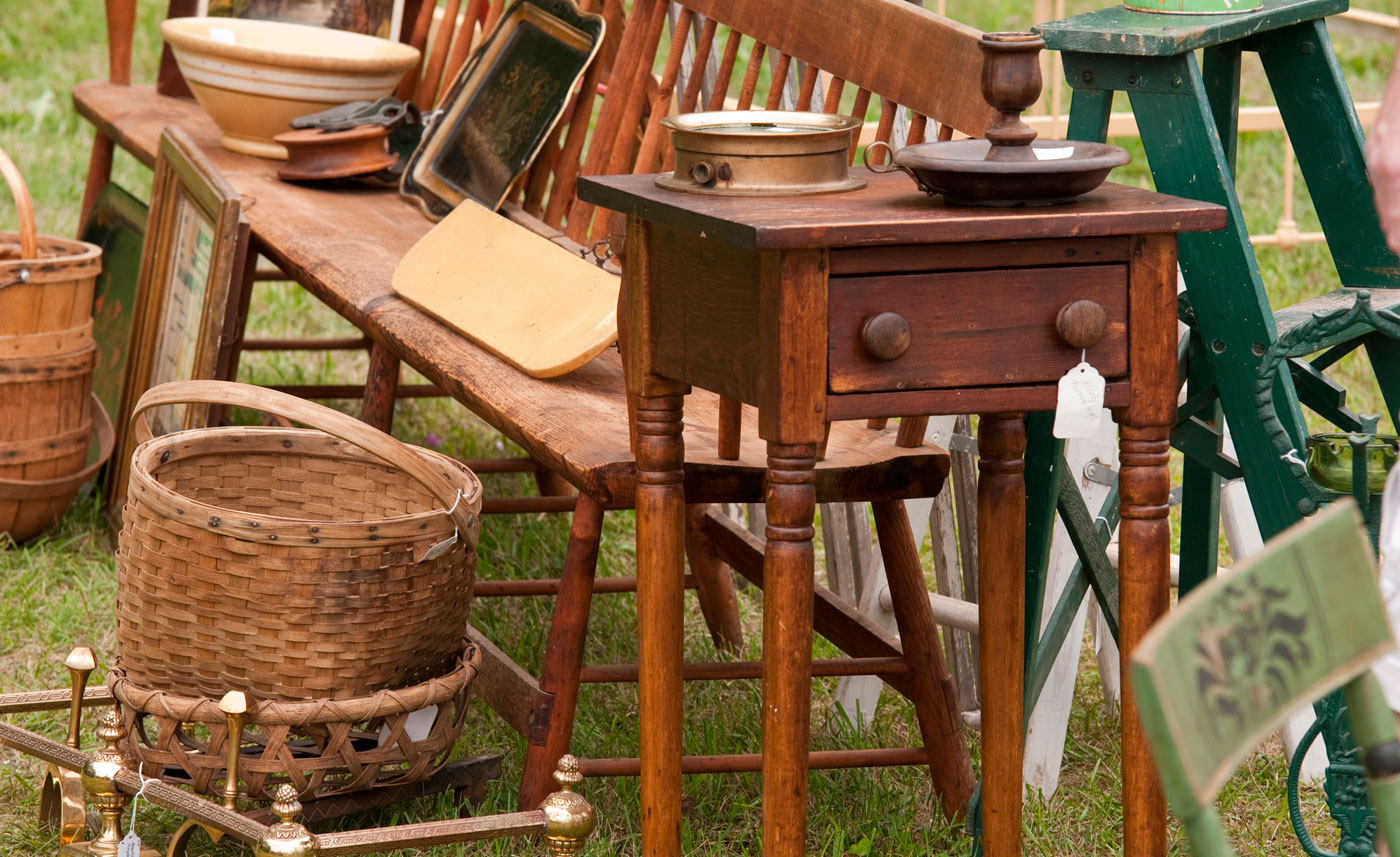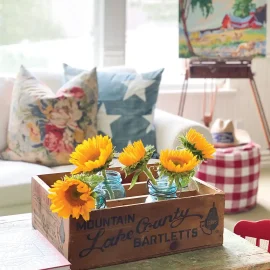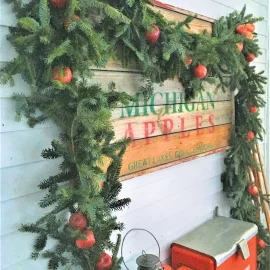
You’ve heard it before, and you’ll hear it again: garage sales and estate sales are fantastic places to purchase antique and vintage pieces at better-than-bargain prices. But while similar in concept, an estate sale offers an entirely different experience.
A person hosting a garage sale is vending a limited selection of their own items, while sellers at estate sales are vending on behalf of a client who is looking to clear the house, typically before it goes on the market. For that reason, there’s a different protocol to learn in order to be successful at an estate sale. Here are some tips to keep you ahead of the game.

1. Plan Your Day
Most event dates, times and locations are posted on estate sale websites like EstateSales.org, EstateSales.net or Craigslist, so research sales in your area before you plan. Many sales start on Thursdays or Fridays, meaning many of the most desirable items may have sold by Saturday and Sunday.
Driving out of town may be worth the bargains, as well-established communities with older populations are more likely to yield higher quality vintage items. Simply getting in your car and looking for sale signs last minute may not get you there at the optimal bargain time.
2. Pick a Time
The first day of the sale is the best for selection, particularly furniture. Arrive half an hour early, so you can be in the first group of shoppers and have your pick of items. However, note that the sellers may not budge on pricing the first day. The last sale day is optimal for bargain prices, with deals getting better as the day comes to a close. Estate sales are typically “everything must go” affairs, so you may find an overlooked gem and get it at half the original cost.

3. Research Prices
If this is your first time at an estate sale, it can be difficult to know whether the price tag is a deal or a rip-off. Research items that you’re looking for to get a sense of the average price before you start shopping. That way, you can know whether to wait until the last day or snatch it up right away. It’s also a good idea to shop year-round to get a sense of regularly priced items versus a deal.
4. Know Your Brands
If you’re particular about your brands, learn their marks and logo, so you know how to spot a fake while shopping. This way, you don’t have to rely on the word of the seller.
5. Be Polite
Estate sales are, in a way, high-end flea markets, and it’s not as simple as offering a lower price for an item. Usually, professionals are doing the selling for the family, and you could offend by trying to bargain. Instead, test the waters by asking if the price is the best they can offer, and they’ll let you know if they’re willing to budge.

6. Bring Cash
While some places take credit cards, it’s always best to ask up front and bring cash just in case. You’d hate to lose a treasure just because you didn’t have the proper means to pay!
7. Test Electronics
Always test any electronics before you purchase them, including vacuums, blenders, fans, lamps, etc. While they may not be intentionally selling you something that’s broken, sellers don’t always have time to test them before a sale, so that becomes your responsibility.
8. Bring a Large Car
You never know what you might find at an estate sale, so even if you’re just looking for some small kitchen items, be prepared in case you fall in love with a furniture piece.

9. Bring a Measuring Tape
Sizing is tricky, and it’s always best to be 100% sure something will fit before you buy it, so bring a measuring tape. Don’t trust yourself to estimate correctly, as most estate sales don’t allow returns.
10. Don’t be Shy
Don’t forget to ask about out-of-the-way places like garages, backyards and attics. There may be some treasures hidden where no one else is thinking to look!











